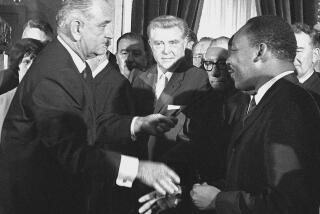Liberty leaps forward; an amazing week in the news
The arc of the moral universe took a sharp bend toward justice in the last week.
On Thursday, in a decision written by Chief Justice John Roberts, the U.S. Supreme Court ruled that four poorly articulated words in a 900-page law cannot nullify the intention of the entire law, thereby reinforcing the provisions of the Affordable Care Act and preserving the newly won right of millions of Americans to obtain healthcare.
Then on Friday, by a 5-4 vote, the court ruled that gay and lesbian citizens have the same constitutional right to marry as straight citizens. Opponents of the decision said the definition of marriage that has stood in most societies for millennia should not be overthrown by the vote of a single judge; rather, the choice to make such a monumental change should have been left to the individual states. However, for those who, until now, have been denied the opportunity to legally join their lives in love and commitment, the long centuries of ostracism and repression were the best argument that change was long overdue. Freedom should not have to wait until the last pockets of resistance give way.
The same day, the high court also upheld a broad interpretation of the Fair Housing Law — a statute passed after Martin Luther King Jr.’s assassination in 1968. Rather than pretending that only overt discrimination is harmful, the justices rightly recognized that various forms of subtle and systemic bias can come into play in lending and community-planning decisions and those biases play a role in continued racial segregation in many American neighborhoods.
In addition to this impressive list of Supreme Court decisions, the horrific massacre of nine black church members in Charleston, S.C., by a 21-year-old white supremacist led to a sudden recognition across the South that it was time to confront the true legacy of the Confederacy. Rebel battle flags started coming down in public places in several Southern states in a belated acknowledgment that the banner is a divisive symbol of slavery and the suppression of black civil rights.
There are, of course, many Americans who are appalled by last week’s flood of big news. To them, the healthcare law — Obamacare — is a dangerous expansion of the welfare state; same-sex marriage is an abomination; federal discrimination laws are an impediment to the free market; and banning the Confederate flag is an insult to Southern heritage. These folks will summon up familiar, traditional arguments to insist freedom is somehow being circumscribed by these developments, but they are arguments that look backward, not forward toward expanded liberty.
Within a few years, it will be obvious to almost everyone that same-sex marriage is not a threat to traditional marriage. Bringing outcasts into the core unit of our society will only strengthen our country. The same goes for providing people who are on the nation’s economic periphery greater access to better housing and more stable neighborhoods. So, too, are we better off when as many citizens as possible are freed from the fear of untreated disease or healthcare expenses that are economically ruinous.
And it is long past time that the legacy of slavery be dealt with truthfully. That, too, will take us closer to liberty and justice for all. On Friday, in his eulogy for the clergyman and state Sen. Clementa Pickney, the most prominent of the victims of the church shooting, President Obama spoke of how important it is to learn history’s lessons.
“Rev. Pinckney once said, ‘Across the South, we have a deep appreciation of history -- we haven’t always had a deep appreciation of each other’s history.’ What is true in the South is true for America. Clem understood that justice grows out of recognition of ourselves in each other. That my liberty depends on you being free, too.”
The week was one of those times that the slow slog of events takes a dramatic leap forward, offering a new chance for citizens of this country to see that we have a common stake in each other’s freedom — black and white, gay and straight, rich and poor. Some among us may not see it yet, but little revolutions like these are what keep the United States on course — a course first charted in 1776 and renewed in 1865; a course toward a more perfect union.
More to Read
A cure for the common opinion
Get thought-provoking perspectives with our weekly newsletter.
You may occasionally receive promotional content from the Los Angeles Times.






